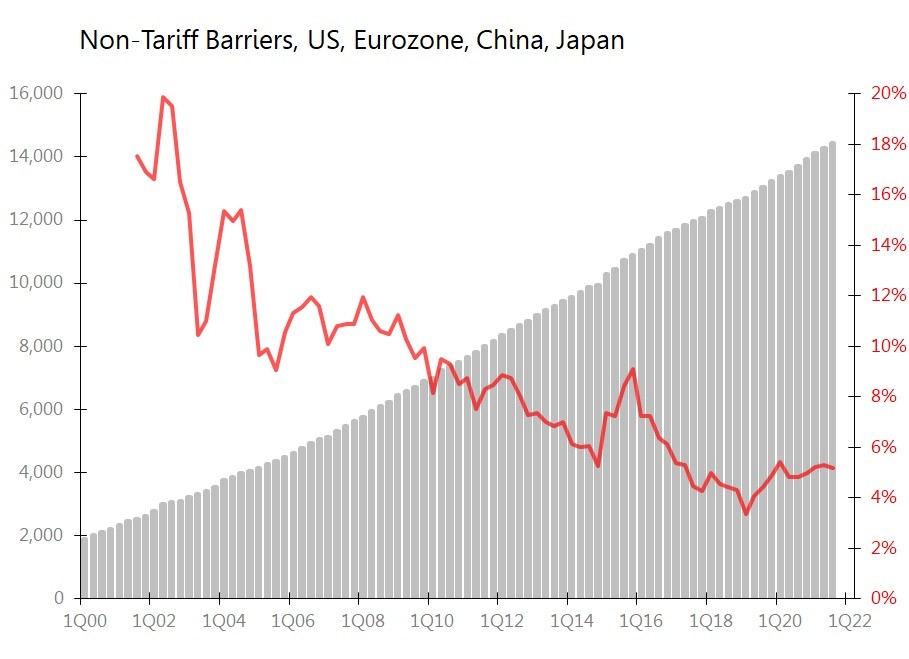Oct 19•3 min read
Mercantalists Rejoice, No Let-up in NTBs
Mercantalists everywhere can celebrate that efforts to impede trade have not slackened simply because of the break-neck de-globalization instigated by the pandemic. Now the WTO's database of Non-Tariff Barriers is back up, we know that trade-warriors in the US, EU, China and Japan have raised a further 730 NTBs in the year to September 30th, taking their total to 14,434.
The US still leads the field, adding a further 215 to take its total to 6449, or 45% of the total.
But the rest are no slouches either: China added 206, and now has 3165 NTBs; the EU added 180 to reach 2724, and Japan added 129 to reach 2096.
And, having left the EU, Britain has emerged as a new contributor to the competitive trade-strangling game: during the year to September, it added 16 new NTBs, to take its tally to 75 (that's a rise of 27% yoy). Meanwhile, in another part of its political economy, Britain is pursuing free trade agreements as befit a 'Global Britain'.
The rush to close borders to imports is relentless, with the pace actually picking up even as governments closed large swathes of the world economy during the pandemic.

What must be doubly pleasing for mercantalists and others opposed to world trade is that this rise has continued even as global imports fell or stagnated: in dollar terms, imports made by these four giant economies fell 11.9% in 2020, and although by August 2021 they had recovered 7.1% on a 12ma basis, they were still 3.7% less than in the 12m to August 2019. This means that not only have NTBs continued to rise in absolute terms, but also in proportion to the trade which survives. By June 2021, every US$1 billion worth of monthly imports into the US, EU, China and Japan made its way in defiance of 23.9 NTBs - up from 22.4 in the same period in 2020 and 19.8 in the same period in 2019. In the year before the GFC began to call time on the favourable idea of globalization, US$1bn of monthly imports had to circumvent only 11.2 NTBs.

There is no reason to expect restrictions to stop, or slow, even as supply-issues emerge as a dominant issue for those governments wishing to 're-open' their economies, and 'build back better'. Rather, what we have here is another 'tragedy of the commons', in which as the legal space for trade contracts, so no country can allow itself to be left behind in its efforts to protect the home market. Mercantilism is winning and will continue to do so: the failure of the WTO can fairly be described as comprehensive.
